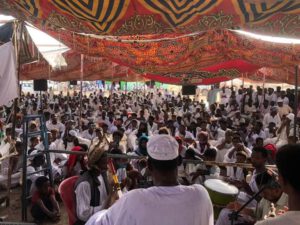Sudan’s Mining Industry is a Big Driver of the Country’s Economy
admin
- 0
Sudan’s Mining Industry
Sudan’s mining industry is a big driver of the country’s economy. The world’s 10th largest gold producer, it also produces iron ore, chromite, copper, nickel and other base metals. But while gold is a hugely valuable resource, it contributes just 4% to the country’s GDP. And most operations are rudimentary and rely on traditional extraction methods.
There is no shortage of challenges facing the country’s mines. Accidents and health problems are commonplace – 60 miners were killed in a tunnel collapse last year, and high rates of cancer among workers are another concern. Its poor infrastructure and lack of access to electricity and credit are also cited as major challenges.
Some of the most notable foreign investors in Africa have a strong interest in Sudan’s potential as a mining hub. ASX-listed Perseus Mining (ASX: PAM), for example, is focusing on Block 14 in the east of the country and pursuing the Kone Gold Project in Cote d’Ivoire.
The company’s CEO, Jeff Quartermaine, says Sudan is an emerging economy and that new investment laws are designed to attract foreign capital. It has been ranked 171 out of 190 countries in the World Bank’s 2020 Doing Business Report, with an economic score of 44.8%, and is seen by many as a key African country to watch in the years to come.

Sudan’s Mining Industry is a Big Driver of the Country’s Economy
Despite its potential, it is likely that the country’s mining sector won’t attract any significant foreign investment for some time. This is because the country lacks effective laws or regulations to govern issues of the environment, rehabilitation, mine closures, and mining-affected communities. The government also needs to address a wide range of other environmental, social and governance issues that would need to be addressed before any meaningful development could take place.
A major concern is that the gold mining industry in the country has been heavily influenced by Russia, whose mercenary group the Wagner Group has built lucrative concessions. The company, which was run by a Kremlin associate named Alexander Sergeyevich Kuznetsov, has been overseeing the extraction of gold from these sites in recent years, according to a CNN investigation in collaboration with the London-based Dossier Center, a research and tracking centre linked to Mikhail Khodorkovsky.
In addition to the gold, the Wagner Group has seized gypsum and limestone deposits in the country. Gypsum is used to make cement, and limestone is used for construction.
It is estimated that a million people work in the mining industry in Sudan, and most of them are artisanal miners. Most of these people use deep trenches to mine the gold, but some don’t follow safety measures. These mines collapse often, especially when the depth of the trenches goes beyond 20 metres.
The emergence of this type of mining has exacerbated tensions between local communities and the government in Sudan, which has led to a series of protests. It has prompted the introduction of a decree banning the use of cyanide and mercury, but the chemicals are still being used in more remote areas of the country.

